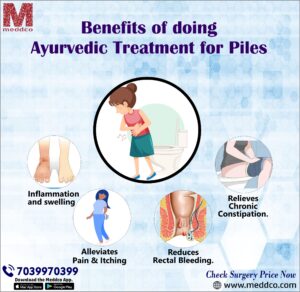
With the right foods, as suggested by an Eye doctor in Lahore, ophthalmic diseases can be prevented, as well as, treated. In a recent study, published in Ophthalmology journal, eating the Mediterranean Diet can help slow the progression of dry and wet age-related macular degeneration. This diet is composed of whole grains, protein, olive oil, dairy and fruit. In addition to these dietary changes, vitamins and prescribed medication should be taken by the patient. Read on to know more about the foods that are helpful for AMD:
Vitamin A
According to the National Institute of Health Office of Dietary Supplements (ODS), this fat-soluble vitamin is vital for the proper working of the body’s immune system, internal organs and vision in the dark. Studies show that beta-carotene is an essential vitamin to slow the progression of wet age-related macular degeneration.
However, smokers should consume supplemental vitamin A only after the approval of their healthcare provider. Research has shown that the risk of lung cancer can increase with excessive intake of vitamin A for smokers. Thus, both former smokers and smokers should be careful.
Foods rich in vitamin A include: greens, carrots, squash, fortified cereals, fruits like mangoes and apricots, sweet potatoes and dairy.
Vitamin E
Antioxidants, like vitamin E, help the body in fighting the damage induced by oxidative stressors and environmental exposures. These stressors worsen inflammation and subsequent damage to the vessels for both dry and wet AMDs.
Intake of at least 400 international units (IU) of vitamin E per day are recommended by the Office of Dietary Supplements of the National Institute of Health, for alleviating the damage of age-related macular degeneration.
Foods rich in vitamin E include: spinach, hazelnuts, spinach, fortified breakfast cereals and broccoli.
Vitamin C
Another powerful antioxidant option is the water-soluble vitamin C. These anti-oxidant properties of vitamin C are helpful in countering the inflammatory damages seen in the macula with wet and dry AMD. These damages are related to age, and independent risk factors like smoking, uncontrolled blood pressure and blood glucose levels. Vitamin C is rich in citrus fruits; other options for vitamin C include broccoli and strawberries. Research backed data recommends daily intake of 500mg of vitamin C for age related macular degeneration.
Zinc
Zinc helps in macular degeneration by reducing the inflammatory changes contributing to wet AMD. Research data shows, however, that zinc related benefits are more visible after years of intake—at least six or more.
The commended intake of zinc for AMD is 80mg. Apart from supplements, dietary sources of zinc include: whole grains, red meat, poultry, dairy products, oysters and beans.
Copper
Copper is a trace mineral, which aids the uptake and use of iron in the body, when taken orally. According to the National Eye Institute (NEI), intake of about 2mg of copper as cupric oxide is the safe range of copper intake for slowing the progression of wet and dry AMD.
Good sources of copper include: whole grains, beans, oysters, shellfish, organ meat like kidney & liver, prunes and nuts.
Folate
Folate or vitamin B-9 is a crucial nutrient for cell growth and replication. In a recent study, individuals with age-related macular degeneration were followed for a period of ten years to check the progression to late stage AMD with concurrent intake of nutrients including folate. This study showed conclusively that folate helps to slow the evolution of AMD. Folate-rich foods include: grains, oranges, peanuts, greens like spinach, Brussel sprouts, peas and fortified cereals.
Lutein & zeaxanthin
Supplementing with both zeaxanthin and lutein is as good as the intake of beta carotene when it comes to mitigating the progression of wet AMD. Additionally, these supplements do not have the risk for lung cancer as beta carotene does. For decreasing the risk of AMD, 2mg of zeaxanthin and 10mg of lutein are recommended.
More dietary recommendations for AMD, as per the needs of the patient, can be obtained from Best Eye Specialist in Islamabad.







